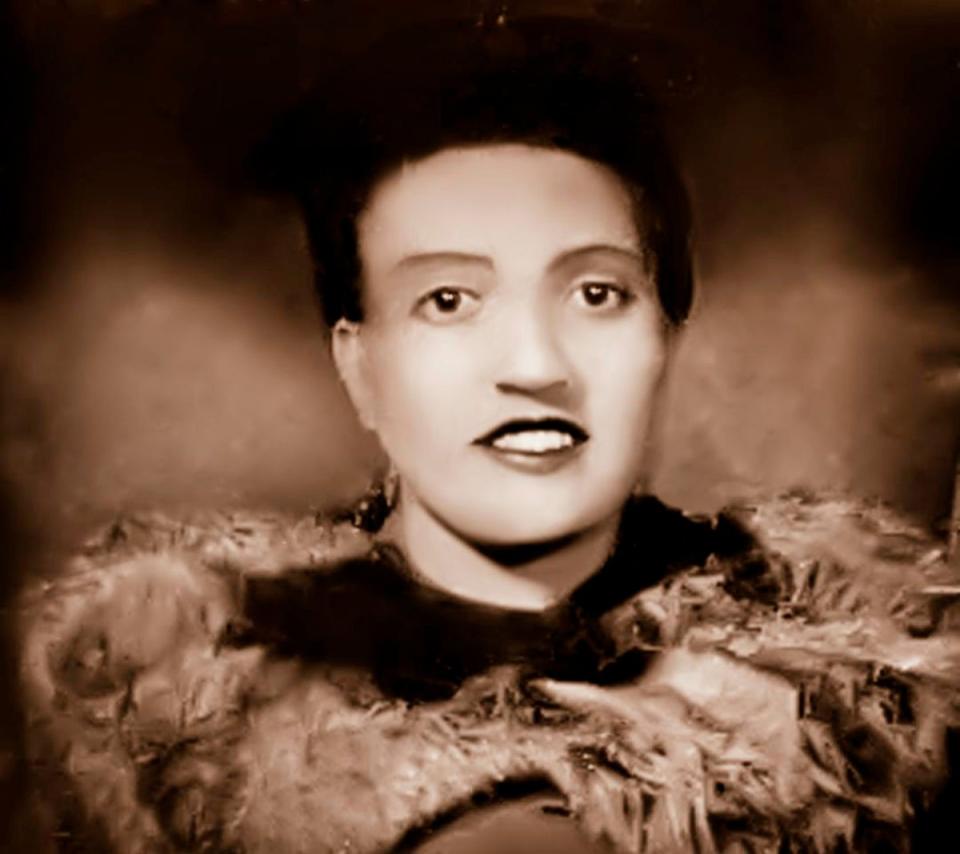Biotech company settles lawsuit for profiting off of woman’s cloned cells for seven decades
- Oops!Something went wrong.Please try again later.
The family of Henrietta Lacks reached a confidential settlement on Monday with a biotech firm who they accused of unjustly profiting from the Baltimore woman’s cells for more than 70 years.
The 2021 lawsuit filed by Lacks’ surviving relatives demanded compensation from Thermo Fisher Scientific for their use of the cells, known as “HeLa cells”, which were taken without permission and are still being used for research and vaccines.
Family attorney Ben Crump, flanked by Lacks’ only living son and several grandchildren, welcomed the settlement at a press conference in Baltimore on Tuesday, on what would have been her 103rd birthday.
“I can think of no better present... than to give her family some measure of respect for Henrietta Lacks, some measure of dignity for Henrietta Lacks, and most of all some measure of justice for Henrietta Lacks 70 years later,” Mr Crump said.
In 1951, Lacks, a tobacco farmer, went to Johns Hopkins Hospital in Baltimore where she was diagnosed with cervical cancer.
A sample of tissue from her tumour obtained from a biopsy was cloned by researcher George Grey, who discovered that instead of dying, they would double in size every 20 to 24 hours, according to the hospital.

Although Lacks died aged 31 on 4 October 1951, her cells played a crucial role in the development of the polio and Covid-19 vaccines, and treatments for HIV, leukemia and cancer, according to Johns Hopkins.
The “HeLa cells” have also been used to study the human genome and examine the effects of toxins, drugs, hormones and radiation on cancer cell growth without the need for human experiments.
Lacks’ story was virtually unknown until the release of a biography, The Immortal Life of Henrietta Lacks, in 2010 and a subsequent HBO movie starring Oprah Winfrey in 2017.
While the university stressed that it had never benefited financially from Lacks’ unique cells, companies such as Thermo Fisher Scientific, the largest maker of scientific tools, have.

The terms of the settlement were reached at a closed door hearing on Monday and have not been disclosed.
The 2021 lawsuit Thermo Fisher Scientific of reaping billions of dollars from a “racist medical system”.
The Massachusetts-based firm was named as the sole defendant, however more than 100 companies have profited from use of the “Hela cells”.
A family spokesperson told the Boston Globe that Thermo Fisher was unlikely to be the the last biotech-pharma company to face a lawsuit.
In 2021, the World Health Organisation honoured Lacks for her contributions to medical sciences in the face of exploitation and bigotry.
Last week, Maryland’s two Democratic senators Chris Van Hollen and Ben Cardin introduced a bill to posthumously award her with the Congressional Gold Medal.

